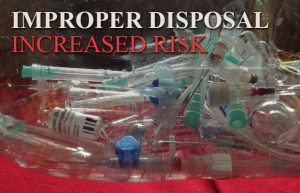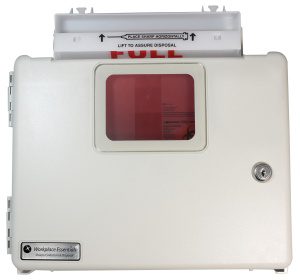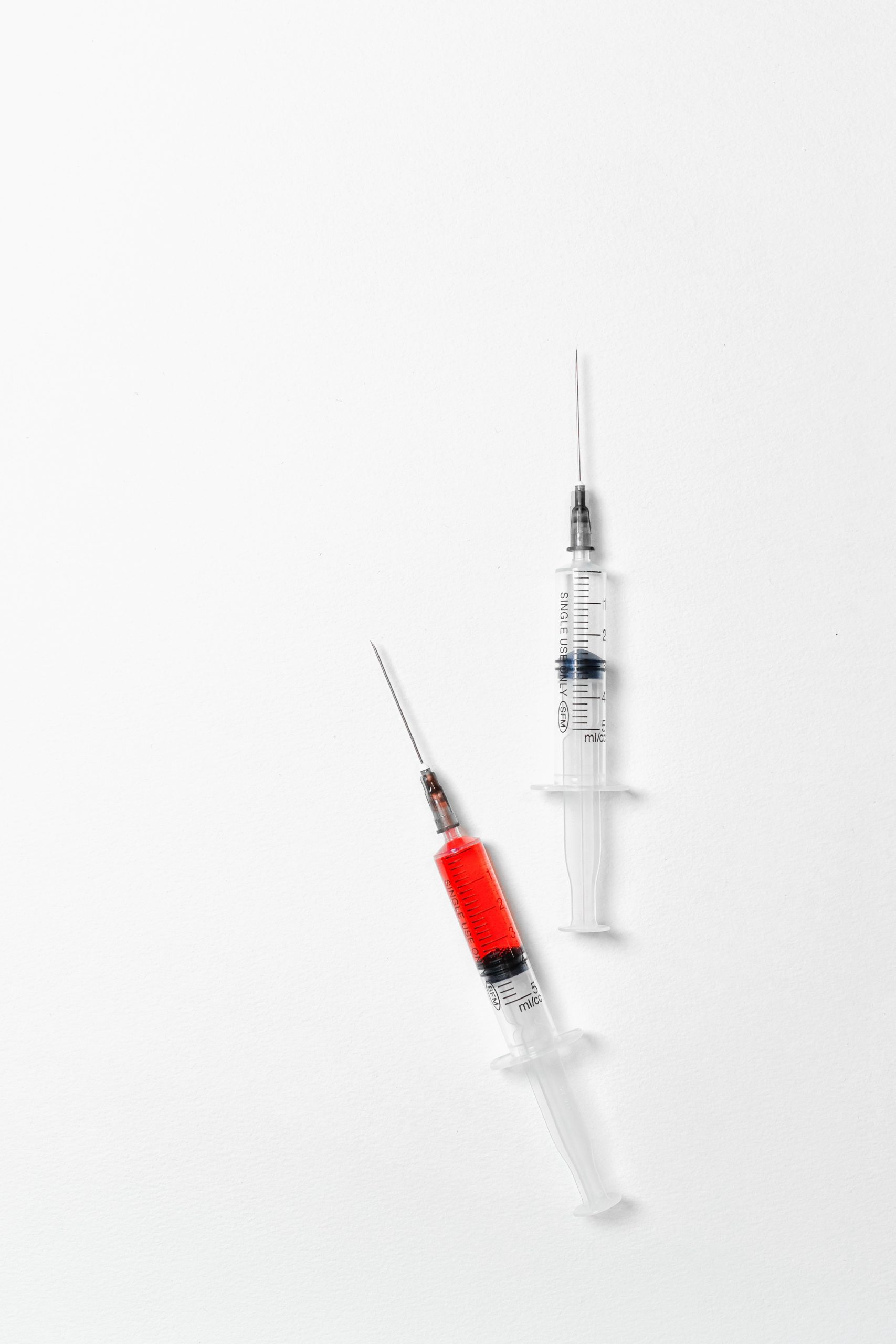Table of Contents
Updated on September 18, 2023
Did you know that every year, a whopping 8 million people in the U.S. use around 3 billion needles and syringes to manage their health conditions?
That’s a lot of sharps! Now, you might be wondering, “Where do all these needles end up?” or “What’s the big deal about sharps disposal?”
Well, let’s dive into the world of sharps, understand their significance, and uncover the best practices for their disposal. Trust me; it’s more crucial than you might think!
Key Takeaways:
- Staggering Stats: Every year, 8 million Americans use approximately 3 billion needles and syringes for medical purposes.
- What’s in a Name?: ‘Sharps’ is a term encompassing needles, syringes, and lancets. Due to their potential to carry diseases, they’re always considered infectious.
- The Importance of Proper Disposal: Improperly disposed sharps pose a risk of needle stick injuries, which can occur anywhere, even in public spaces or workplaces.
- Safety First: OSHA mandates the use of compliant sharps containers to prevent hazardous accidents and potential exposure to diseases like Hepatitis B, Hepatitis C, and HIV.
- Professional Disposal: Engaging a trained professional for sharps collection and disposal minimizes the risk of exposure to bloodborne pathogens.
What exactly is a sharp?
Essentially, sharps are the collective term for needles, syringes, and lancets. Given their intimate contact with blood and bodily fluids, they’re potential carriers of diseases. This makes their proper disposal not just a recommendation but a necessity.


Why is proper sharps disposal so important?
In the vast landscape of medical tools, sharps hold a unique position. With an astounding 8 million people in the United States relying on about 3 billion needles and syringes annually, the question of their disposal becomes paramount. The Environmental Protection Agency (EPA) has been tracking these numbers, and it’s clear: we need to be smart about where these needles end up.
The significance of sharps disposal isn’t just about cleanliness; it’s about safety. Imagine the risk a used needle poses in a public facility or workplace. Without established disposal protocols, these sharps could easily find their way into regular trash, posing a grave threat to maintenance staff and others.
Reduce the Risk
OSHA has set clear guidelines. All sharps must find their way into compliant sharps containers, ensuring that the risk of exposure to infectious diseases like Hepatitis B, Hepatitis C, and HIV is minimized. By providing a safe disposal environment, we’re not just protecting individuals but also ensuring a safer community.
A final word of advice? Always rely on trained professionals for sharps collection and disposal. It’s a small step that goes a long way in reducing the risk of exposure to bloodborne pathogens.
Providing employees and customers with a safe environment for disposal will help to reduce exposure for everyone.


What We Need To Remember!
Always have a trained professional remove your used sharps as a Sharps Collection and Disposal Service reduces the risk of exposure to bloodborne pathogens!
FAQs:
- What are sharps?
Sharps refer to medical tools like needles, syringes, and lancets that can puncture the skin. - Why is sharps disposal crucial?
Improper disposal can lead to needle stick injuries and potential exposure to infectious diseases. - How many people use sharps annually in the U.S.?
Approximately 8 million people use sharps in the U.S. every year. - What diseases can be transmitted through improperly disposed sharps?
Diseases like Hepatitis B, Hepatitis C, and HIV can be transmitted through sharps. - What are the guidelines for sharps disposal?
OSHA mandates that all sharps be disposed of in compliant containers to prevent hazardous accidents.
Related posts:
- Global Handwashing Day 2024: Importance & Hygiene Impact
- Hepatitis Risk in Washrooms: Protection & Hygiene Tips [2024]
- Importance of Hand Washing in Schools – Hand Hygiene Benefits
- Are Hand Dryers Hygienic? Myths & Importance Of Hand Dryers
- Hair, Nail Salon Hygiene Tips And Good Practices [2023]
- Hygiene Tips for Workers in Healthcare Facilities [2024]
- Construction Site Hygiene & Cleaning Tips for Business [2024]
- Car Dealership Hygiene & Sanitation Tips – GUIDE [2024]
